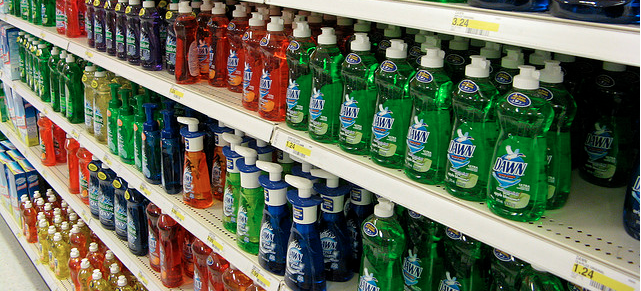FDA Proposal Gives Makers Of Antibacterial Soap A Year To Prove Their Products Are Safe

(cjw333)
The Food and Drug Administration has been under pressure for some time now to take a closer look at antibacterial soap to see whether we should actually be slathering the stuff all of over our hands and bodies every day. And now it’s proposing a one-year period for manufacturers to prove that yes, the soap is safe for everyday use and in the long-term.
The FDA’s proposal would require companies to show that their products are also more effective than plain soap and water in preventing illness and the spread of infection. Any company that can’t prove safety and effectiveness will have to either relabel the product or reformulate it.
Hand sanitizers, wipes or antibacterial products used by doctors and the like wouldn’t be affected by the rule, which is part of a larger effort to make sure soap ingredients are safe.
The FDA says there isn’t any evidence so far that proves that antibacterial soaps and body washes prevent illness any better than regular soap and water, and that some ingredients in the products like triclosan and triclocarban could pose health risks.
“Antibacterial soaps and body washes are used widely and frequently by consumers in everyday home, work, school, and public settings, where the risk of infection is relatively low,” said Janet Woodcock, M.D., director of the FDA’s Center for Drug Evaluation and Research (CDER). “Due to consumers’ extensive exposure to the ingredients in antibacterial soaps, we believe there should be a clearly demonstrated benefit from using antibacterial soap to balance any potential risk.”
Soap companies will have to fork over data to the FDA on their products’ safety and effectiveness, including info from clinical studies that show they’re superior to regular soap in preventing illnesses and stopping infections from spreading.
FDA issues proposed rule to determine safety and effectiveness of antibacterial soaps [FDA.gov]
Want more consumer news? Visit our parent organization, Consumer Reports, for the latest on scams, recalls, and other consumer issues.

